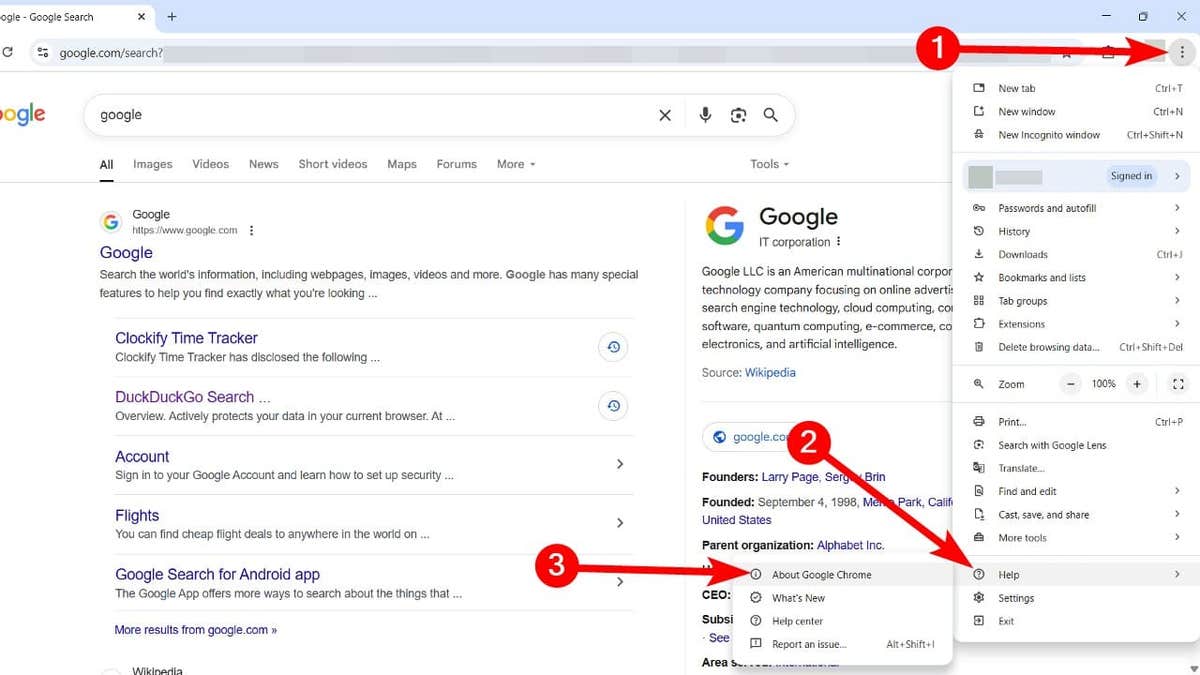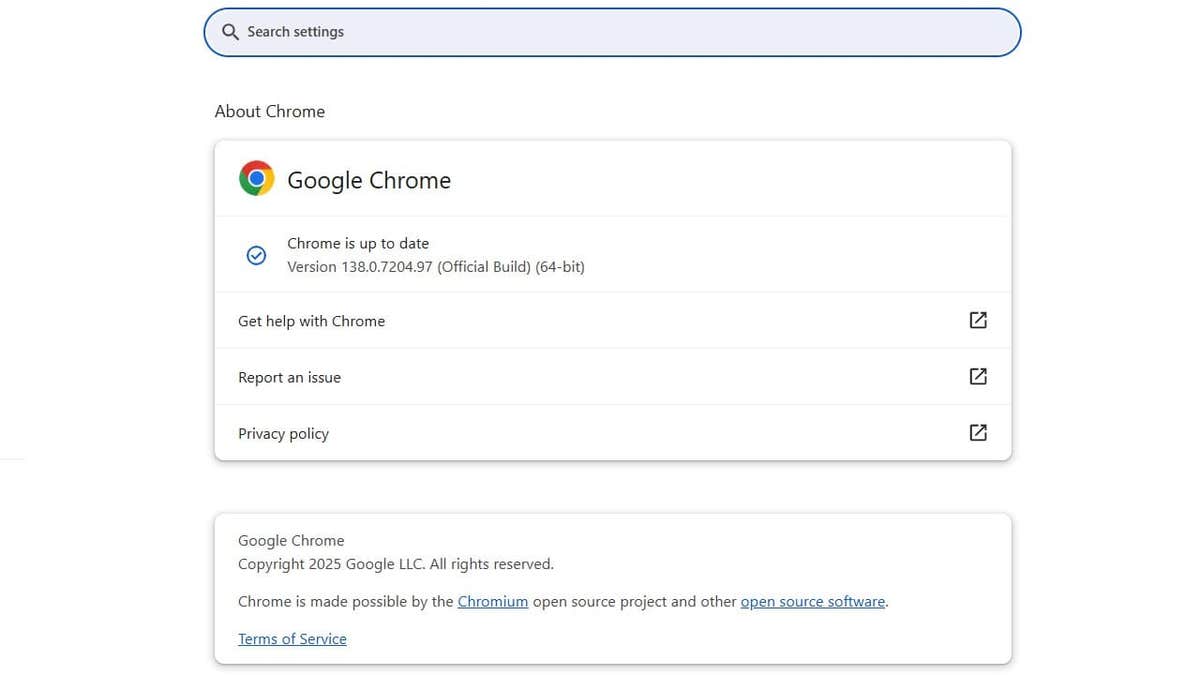NEWYou can now listen to Fox News articles!
Cyber threats are on the rise, and attackers are becoming more aggressive with each new breach. As a result, Google patched a critical vulnerability in its Chrome browser.
This marks the fourth zero-day exploit discovered so far this year. Because hackers had already begun exploiting the flaw, Google quickly released an emergency update for Chrome users on Windows, Mac and Linux.
In light of this, as these threats grow more frequent and more sophisticated, taking control of your digital security is essential. With that in mind, here is what you need to know about the latest exploit and the steps you can take to stay protected.
MALWARE TARGETS MAC USERS WITH FAKE CAPTCHA AND AMOS STEALER

A MacBook with Google Chrome on it. (Kurt “CyberGuy” Knutsson)
What is the Google exploit all about
The high-severity security flaw, identified as CVE-2025-6554, stems from a type confusion bug in Chrome’s V8 JavaScript engine. Attackers can exploit this vulnerability to run malicious code or access other parts of your system by manipulating memory. Fortunately, Google’s Threat Analysis Group (TAG), which tracks state-sponsored and targeted spyware attacks, discovered the flaw and quickly issued security updates to protect users.
GET FOX BUSINESS ON THE GO BY CLICKING HERE
How to stop the exploit from exposing your computer
To stop hackers from exploiting the Chrome security flaw, start by updating your browser with the latest security patches. Although Chrome typically updates automatically, you should still check manually to make sure you are running the most recent version. To do this, follow these steps:
- Open Chrome on your desktop
- Click the three-dot menu in the top-right corner
- Go to Help
- Click About Google Chrome

Navigating Chrome (Kurt “CyberGuy” Knutsson)
- Chrome will now check for updates and install any that it finds

Chrome settings (Kurt “CyberGuy” Knutsson)
- Once updated, click Relaunch to apply changes
The latest stable versions that address this exploit are 138.0.7204.96/.97 on Windows, 138.0.7204.92/.93 on Mac, and 138.0.7204.96 on Linux.
Don’t forget to install or update your antivirus as well
Updating Chrome is only the first step in protecting your device. To strengthen your defenses, you also need to install reliable antivirus software. Zero-day vulnerabilities like this one can still allow malware to slip through, even after you patch your browser.
WHAT IS ARTIFICIAL INTELLIGENCE (AI)?
On Windows devices, Microsoft Defender comes pre-installed and offers a solid layer of free protection. Similarly, Android devices rely on Google Play Protect for automatic malware detection and removal. However, keep in mind that Play Protect is not always enough. It has a history of missing certain threats and may not catch every strain of malware.
Mac users benefit from Apple’s built-in XProtect system, which Apple updated on July 8, 2025, to counter the latest known malware strains. Even so, adding a trusted third-party antivirus can provide stronger, more comprehensive protection.
When choosing antivirus software, make sure it includes these key features:
- Detects malware that may bypass browser defenses
- Offers real-time protection against new and emerging threats
- Safeguards sensitive information like passwords and financial data
If you already have antivirus installed, take a moment to check for updates. Keeping it current ensures you’re protected against the latest security threats.
Get my picks for the best 2025 antivirus protection winners for your Windows, Mac, Android & iOS devices at CyberGuy.com/LockUpYourTech
Kurt’s key takeaways
Hackers are already exploiting the latest Chrome flaw, and more vulnerabilities are almost certain to follow. Updating your browser is not just recommended, it serves as your first line of defense. However, protecting yourself requires more than just patching software. Installing a trusted antivirus and following smart browsing habits can make the difference between staying secure and becoming a target. Stay alert by avoiding suspicious links, never downloading files from unknown sources, and always verifying website URLs before entering personal information. In today’s digital world, one careless click can expose everything.
CLICK HERE TO GET THE FOX NEWS APP
What security measures have you taken to protect your devices from online threats? Let us know by writing us at Cyberguy.com/Contact
Sign up for my FREE CyberGuy Report
Get my best tech tips, urgent security alerts and exclusive deals delivered straight to your inbox. Plus, you’ll get instant access to my Ultimate Scam Survival Guide – free when you join my CYBERGUY.COM/NEWSLETTER.
Copyright 2025 CyberGuy.com. All rights reserved.
